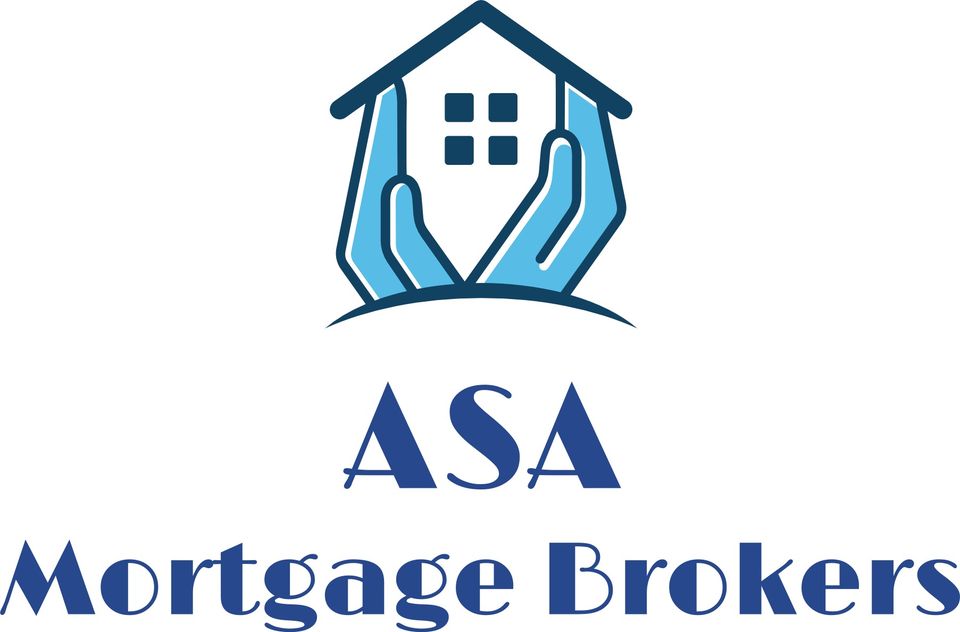WHEN PURCHASING PROPERTY, A MORTGAGE BROKER CAN HELP YOU GET THE RIGHT LOAN FOR YOUR CIRCUMSTANCES.
Buying a home is a big step – and it is essential to ensure you have all your ducks in a row before getting started.
Whether you are a first-time buyer or a seasoned property investor, a mortgage broker can be a tremendous asset and can help guide you through the loan application process from start to finish. ASA Mortgage Brokers have access to a panel of over 35 lenders.
Here is what you need to know about mortgage brokers and how they can help.
What is a mortgage broker?
A mortgage broker is a licensed credit professional who liaises between you and your lending institution. They collect information about your financial situation, goals, and preferences to find the right loan to match your needs.
A mortgage broker can help you buy a property or refinance your existing mortgage. However, they are obligated to make recommendations based on your best interests.
What does a mortgage broker do?
A mortgage broker’s job is to help you figure out how much you can borrow and help you find a loan that is suited to your needs. A mortgage broker can also educate you on the different types of loans and how certain features work.
With many options available, a mortgage broker might know about options you may not have been aware of and can explain things in a way that is easy to understand.
Usually, the process of working with a mortgage broker starts with securing pre-approval. Next, your broker will gather basic personal and financial information to see what loan amounts, interest rates and repayment terms you may qualify for.
Once you have pre-approval for a specific loan amount, you can search for a property within your budget. When you find the one you want, you can make an offer conditional upon your loan approval.
At this point, your mortgage broker will send the details of the property to the lender. The lender will conduct a valuation on the property to ensure it is acceptable security for the loan. You may also need to answer some clarifying questions or provide extra information like updated payslips.
Once your application is formally approved, your mortgage broker will provide your formal loan offer. Depending on your circumstances, your interest rate may be slightly higher or lower than what you were pre-approved for unless you have requested a Rate Lock.
If you accept the offer, your broker & conveyancer (for purchases) will arrange for you to settle on the loan when the time comes to take possession of the property.
Why should I use a mortgage broker?
Working with a mortgage broker can offer many significant advantages, and more than 60% of Australians now use a broker for lending support.
One of the key drawcards to using a broker is that they have access to lots of different lenders, which means they can offer more options and greater flexibility. And, because mortgage brokers are legally required to act in the best interest of their customers, borrowers have an added layer of protection.
Another reason to use a mortgage broker is that a home loan is a long-term commitment, and circumstances may change. So, a good mortgage broker will provide ongoing support and help you when the time comes to sell or refinance. And, many brokers can support you with other lending needs, like car, business, commercial and personal loans.
A mortgage broker can also help with a lot of the loan application legwork – and many have existing relationships with different lenders and underwriters. As a result, they know what a lender will and will not accept and understand how to submit the application, which can often help to speed up the approval process.
How much does a mortgage broker cost?
Most mortgage brokers are paid in lender commissions, meaning there are no out-of-pocket expenses for you to cover. Usually, the commission ranges between 0.65% – 0.7% of the total sale price, plus a smaller trailing commission of around 0.15% per year on the remaining amount for the life of the loan. However, if your loan did not settle for some unprecedented reason, the broker would not be paid for his work and effort unless there is a mutual agreement between the customer and the broker to pay any service fees stated on a Credit Quote.
Some brokers may choose to charge a flat fee or percentage, but they will discuss this with you before getting started. Most lenders will charge some upfront fees associated with applying for and settling on your loan, as well as the cost of a professional valuation.
What is a mortgage broker commission or fee?
Mortgage brokers are usually self-employed or independent contractors, making their living on commissions or fees. Like real estate agents, mortgage brokers do not earn a profit until the deal is done.
This model is suitable for borrowers because their broker is just as motivated to approve the loan quickly. In addition, while different lenders pay different commission percentages, there is relatively slight variation across the industry.
Reputable brokers are more focused on finding you the right loan – not just the most lucrative one. They would lose commissions and credibility if they were to recommend you a mortgage you cannot afford.
So, although most brokers work on commission, the lender usually pays. And, if they find a better deal than you would have found on your own, a broker can help you save a lot of money.
What questions should I ask a mortgage broker?
Before making any commitments, it is essential to talk to your broker about any concerns and make sure you understand the fine print. Here are some questions you might want to consider asking your mortgage broker:
- How many different lenders have you been accredited with or have access to?
- How do you get paid?
- Will there be any upfront fees?
- What documentation will I need to provide?
- What lender do you recommend and why?
- How much can I borrow based on my income and deposit amount?
- Will there be exit fees if I refinance?
- Are there things I could do to improve my application success?
- What loan features can I opt in or out of?
- Can I make extra repayments to pay my loan off sooner?
You should also make sure that your broker has a valid credit license. If they do not, they are operating illegally. Check ASIC’s online registry and look for your mortgage broker’s name under Credit Registered Person, Credit Representative or Credit Licensee. ASA Mortgage Brokers will provide you with Credit Gude & Privacy Consent in the initial meeting, including the information described above. The Statement of Credit Assistance (SOCA) will explain and include information for most of your concerns above and detail what your loan contract would look like before signing the lender’s loan contract.
How do I find a mortgage broker?
If you are looking for a mortgage broker, referrals from friends, family and colleagues can be a great place to start. If their broker helped them achieve a good outcome, they would likely do the same for you.
You can also go online and search for mortgage brokers in your local area. For example, suppose you are self-employed or have a complicated credit history. In that case, it can be a good idea to look for a broker who has experience working with people in similar circumstances.
So, if you are ready to take the next step on your property journey, ASA Mortgage Brokers can help you navigate the process and find the right home loan for your needs.
To discuss your home loan needs, contact ASA Mortgage Brokers today to book your FREE consultation appointment.
The information is a compilation from various sources for your benefit and should not be relied upon instead of appropriate professional advice. This article is prepared based on general information. It does not consider individual financial objectives or needs and is not financial product advice, and the content quoted from Liberty Financial Blog.

